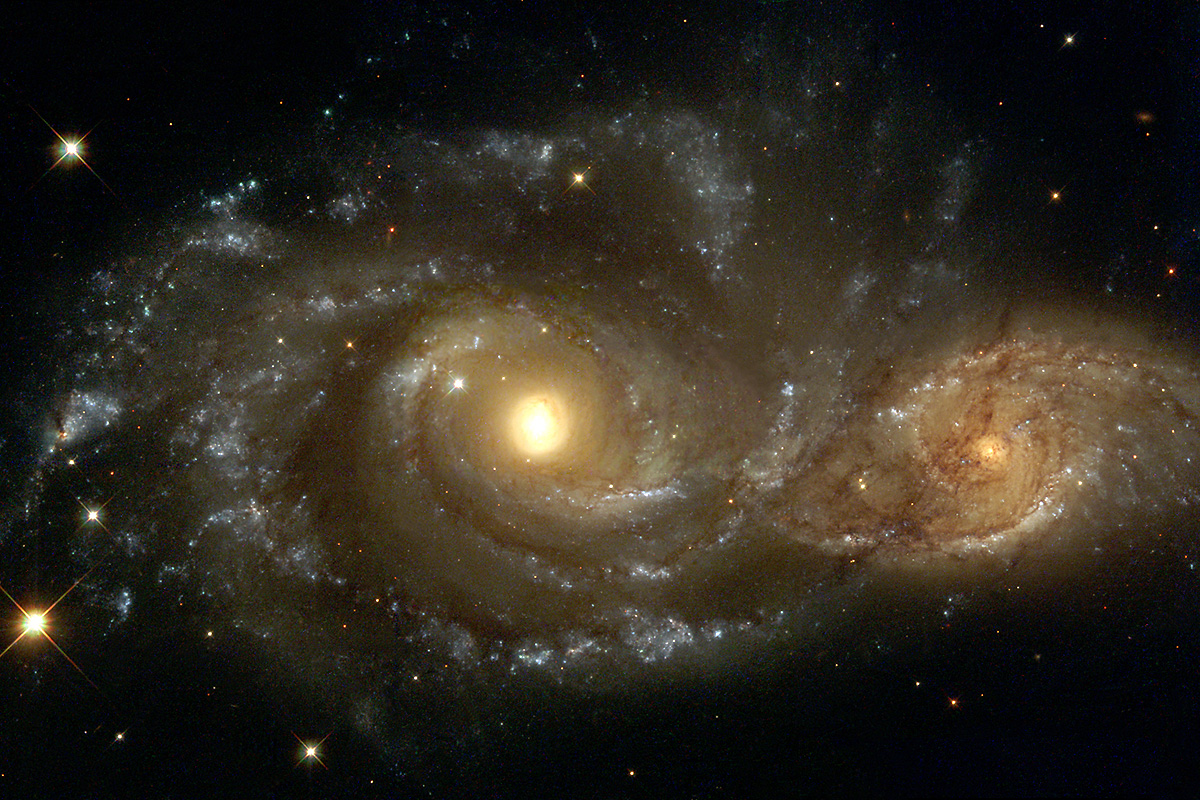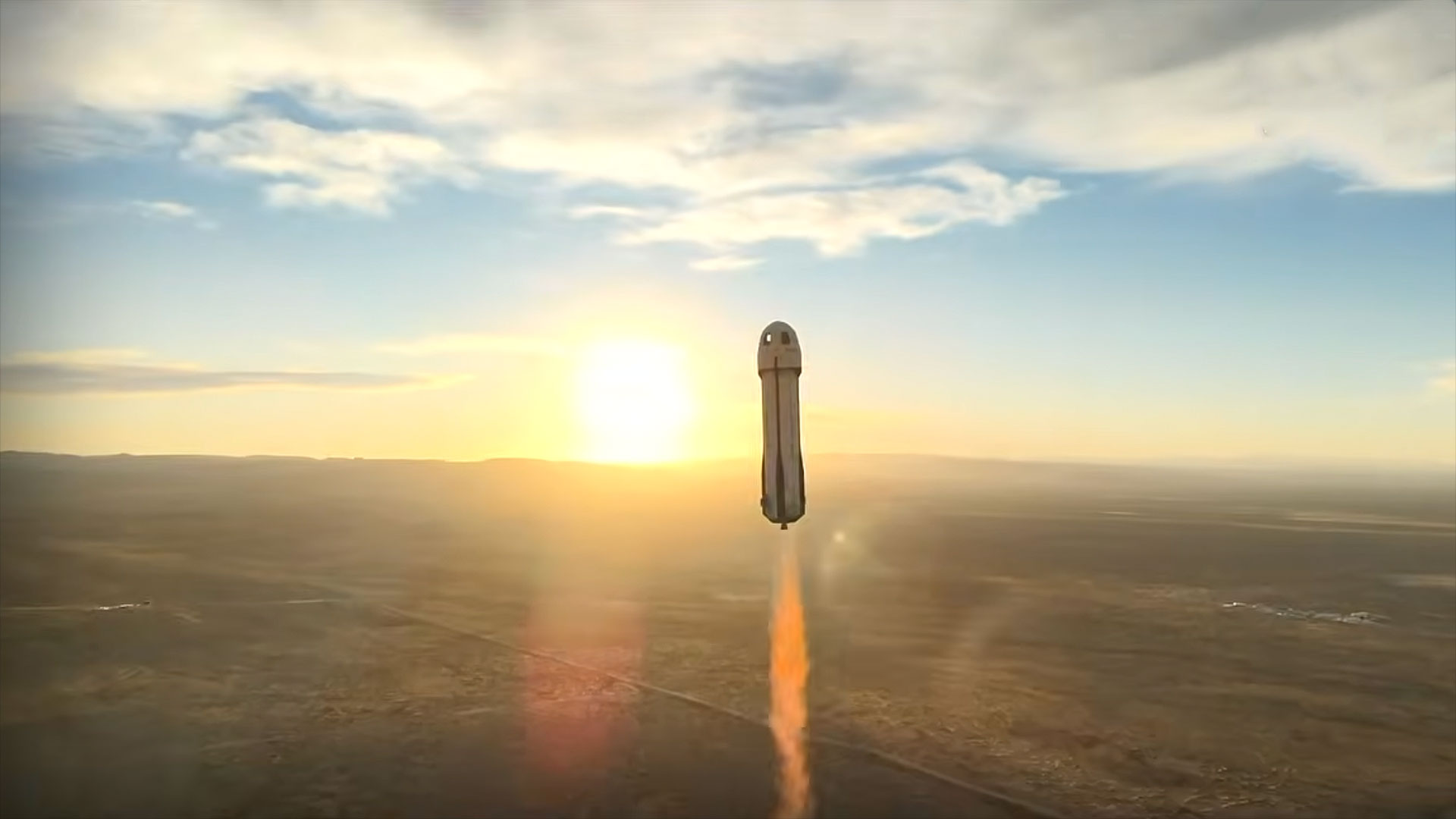
Study Eyes Influence of Religion on Future Space Exploration

A new study by a political science professor in Ohio has taken a close look at how a person's religous beliefs can influence personal opinions on space exploration.
University of Dayton political science assistant professor, Joshua Ambrosius, used data from the General Social Survey and three Pew surveys to compare knowledge, interest and support for space exploration among Catholics, Evangelicals, Mainline Protestants, Jews, Eastern religions and those with no religion.
His research, "Separation of Church and Space: Religious Influences on Support for Space Exploration Policy" was recently presented at the Society for the Scientific Study of Religion conference in Indianapolis.
Among his findings, Ambrosius found that Evangelicals — who account for one-quarter of the U.S. population — are the least knowledgeable, interested and supportive of space exploration, while Jews and members of Eastern traditions were most attentive and supportive, according to a Univ. of Dayton press statement.
The researcher also found that while regular church attendance, along with other measures of traditional religious belief like a high view of the authority of the Bible and belief in creationism, exert a negative effect on support for space exploration, clergy support for science exerts a significant positive effect.
Evangelicals in particular were twice as likely to recognize the benefits of space exploration if their pastors speak positively about science.
Disturbing trend
According to Ambrosius, the youngest generations, Generation X and the millennials, as a whole, exhibit less interest in space exploration than the previous baby boomer generation.
Breaking space news, the latest updates on rocket launches, skywatching events and more!
"This finding, if reflective of reality, is a disturbing trend. This again highlights the need for the space community to educate and excite young people to build the long-term constituencies necessary to promote and carry out future space exploration," Ambrosius observed in his research paper.
Additionally, Ambrosius noted that the privatization of space exploration could be a game changer if Evangelical hesitations are, in some part, driven by anti-government sentiment. "Further research should explore this possibility," he added.
Our space-faring future
"This research finds evidence that religion shapes space and space policy attitudes, even if the significant effects are dampened or eliminated once socio-demographic factors, like education, are held constant. One tradition — Evangelical Protestants — stood out as exhibiting less space knowledge, space policy support, appreciation for space exploration, and expectations of achievements in space," Ambrosius noted in his paper.
"All in all, this research shows that further study must be done to test the influence of religion on space exploration attitudes and, ultimately, to assess the roles of religion in our space-faring future," Ambrosius explained. "Ultimately, religions must ensure their survival by embracing space."
"No, religion does not stand in the way of serious space exploration — but the space community still has a lot of work ahead to reach skeptical Evangelicals, foster support among religious friends of space, and convince young people that our future is among the stars. Our survival as a species, and by extension the survival of human religious institutions, may very well depend on it," Ambrosius concluded.
Leonard David has been reporting on the space industry for more than five decades. He is former director of research for the National Commission on Space and is co-author of Buzz Aldrin's 2013 book "Mission to Mars – My Vision for Space Exploration," published by National Geographic, with a new updated paperback version to be released next year. Follow us @Spacedotcom, Facebook or Google+. Originally published on Space.com.

Leonard David is an award-winning space journalist who has been reporting on space activities for more than 50 years. Currently writing as Space.com's Space Insider Columnist among his other projects, Leonard has authored numerous books on space exploration, Mars missions and more, with his latest being "Moon Rush: The New Space Race" published in 2019 by National Geographic. He also wrote "Mars: Our Future on the Red Planet" released in 2016 by National Geographic. Leonard has served as a correspondent for SpaceNews, Scientific American and Aerospace America for the AIAA. He has received many awards, including the first Ordway Award for Sustained Excellence in Spaceflight History in 2015 at the AAS Wernher von Braun Memorial Symposium. You can find out Leonard's latest project at his website and on Twitter.
